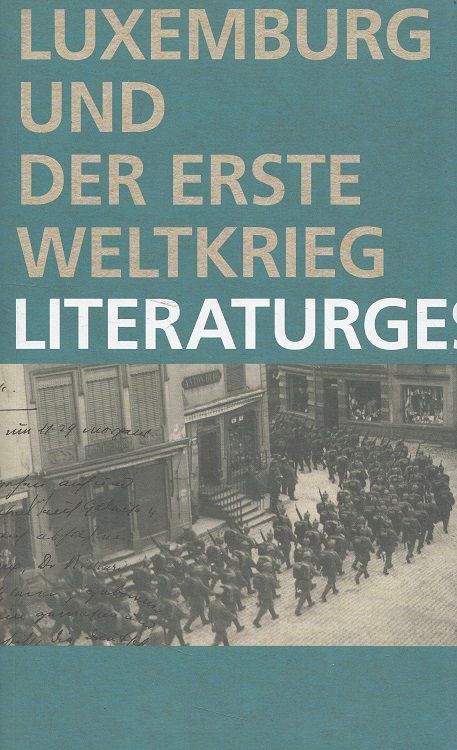
“Luxemburg und der Erste Weltkrieg, Literaturgeschichten“, or “Luxembourg and the First World War, Literary History(s)“, is a catalogue accompanying the exhibition of the same name. It explores the question: “What was the war?” from the point of view of literature.
Daniela Lieb, Pierre Marson and Josiane Weber have collected and analysed over 250 contemporary literary and historical documents. They include diaries, letters, chronicles, photos and objects. They show to what extent the Great War was present in Luxembourg. From August 1914, Luxembourg, a neutral country, was occupied by German troops. For the country, this was the beginning of an unprecedented period of crisis.
Writers and journalists were censored and persecuted, some were forced into exile. The pieces in the exhibition illustrate individual fates or opinions that help to understand the divided situation of the country and its citizens.
The exhibition was divided into 5 parts, as was the accompanying catalogue.
Books, photos and diary entries illustrate how Luxembourgers experienced the beginning of the war and the traumatic occupation.
The legally and morally binding situation of Luxembourg and its citizens during the four years of occupation is discussed. The feeling of ‘great shame’, resignation, shame and collaboration are at the heart of this section. The resistance, espionage and the consequences thereof are also discussed.
“Uns indicible Mühe in einer trostlosen Zeit” (Our indescribable effort in a dark time) illustrates the supply situation with two nutritionally essential staples: bread and potatoes. The beginnings of the organised labour movement also had their origins in the protest against the food shortage.
With his expression ‘In the war waiting room’, Batty Weber describes the inactive attitude of most of his contemporaries during this period. In this part, the focus is on the reality of the war outside the fighting. This includes, for example, refugees arriving in Luxembourg, the care of the wounded or the transport of corpses across the country. The foreign legionnaires are also highlighted. They were the subject of numerous plays, poems and prose, and were revalued in the post-war period.
For example, we look back at the reign of Grand Duchess Marie-Adélaïde and the presence of American troops in Luxembourg.
Through the journey of four student filmmakers and their professor who follow in the footsteps of their forefathers in the Land of Memory.
I discover